Originally Posted at abc.org:
November 15, 2021
Each year approximately 17.6 billion pounds of plastic enters the ocean. If you have trouble fathoming such a “heavy” number, try imagining a garbage-truck-sized load dumped every minute, which is what it would take to accumulate this much trash.
Marine debris — defined as solid, human-made trash in the marine environment — is made up of many different things, but more often than not it's plastic-based. For sea- and shorebirds, plastic trash is a major threat, claiming the lives of countless birds every year.
If you've ever wondered where all this plastic comes from, how it gets into the ocean, and why it's so detrimental for birds, keep reading. And don't forget to check out our easy tips at the bottom of the blog to begin reducing your plastic footprint today.
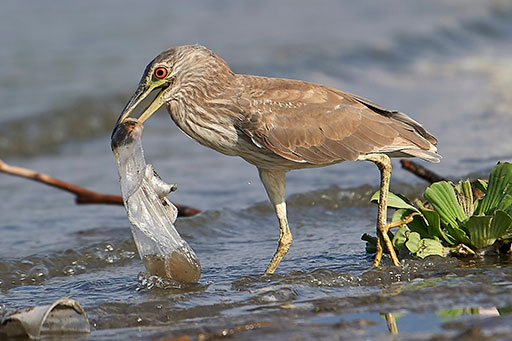
The Travels of Trash
To understand why there's so much plastic in the ocean, we need to know how it travels. Plastic is typically light and buoyant, meaning it can easily float in water or be carried by wind.
Plastic also does not decompose easily — or at all — so while it may break down into small pieces called microplastics, plastic is bound to stick around in the environment well beyond our own lifetimes.
Due to these characteristics, it's easy for plastic to travel by gutter, stream, or river to the coast. In fact, scientists have determined that 80 percent of marine debris comes from land, as opposed to the other 20 percent that is dumped or spilled into the marine environment.
Once trash makes its way from land to sea, it can travel across the globe before washing up on land again.
The Peril of Plastic for Birds and Wildlife
Trash, and especially plastic, can harm wildlife in two main ways: ingestion and entanglement.
The same characteristics that make it easy for plastics to travel to the ocean also make it easy for coastal and marine species to ingest them. Microplastic debris in the sand or floating in the water can look a lot like plankton, a favorite meal of many species. Making things worse, recent research suggests that plastic may even develop food-like smells that attract birds and other wildlife.
When ingested, plastic can cut soft tissues and damage internal organs. Swallowed plastics are often too big or plentiful to pass through animal digestive systems and cannot be broken down by stomach acids. As a result, plastics can accumulate in animals' stomachs, causing them to stop eating and starve.
Entanglement is another widespread threat. Animals living both in the water and on the beach get caught in discarded fishing line, nets, and other plastic items. This can hamper the animal's ability to hunt, escape predators, and provide for young, among other things. Entangled pieces of plastic can also dig into their skin, causing cuts, infection, and even loss of a limb.
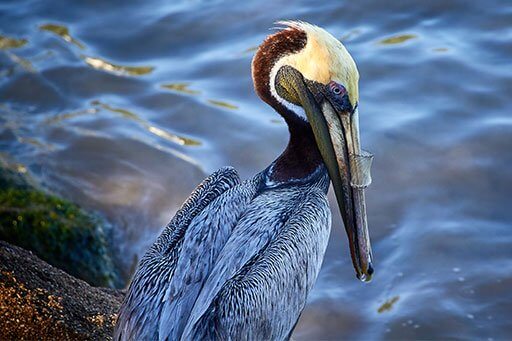
Given the threat plastic pollution poses to birds and wildlife — not to mention the potential threats to human health — it's critical that we work together to turn the tide. Recycling is a great way to get started.
Recycling Plastic: More Than Meets the Eye
Among recyclable materials, plastic is the most challenging to recycle. Many types of plastic cannot be recycled, and it is significantly cheaper to create new plastic products rather than recycle existing ones. As a result, just 9 percent of all plastics ever made have been recycled.
While you may see recycling icons on most plastic items, this symbol does not actually mean that the product is recyclable. Instead, look for the number inside the triangle of arrows. This number indicates the plastic type and whether or not it really can be recycled. (Here's a guide to interpreting those numbers.)
It's also important to understand your local recycling program: The types of materials accepted in one city may be different from others. Familiarizing yourself with your local policy helps avoid “wishcycling,” the fruitless attempt to recycle nonrecyclable materials, which only contaminates recyclable products.
If you're familiar with the three “R”'s of sustainability (reduce, reuse, recycle), you're probably aware that “recycle” comes last — and that is for good reason. Recycling, while important, is an imperfect system, so first and foremost we need to reduce and reuse if we're going to curtail plastic use.
Cut Down Plastic Consumption
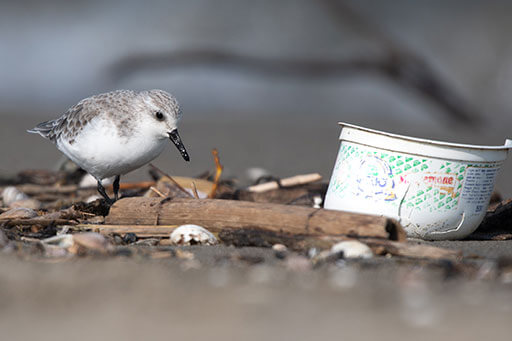
Even if you don't litter, your trash could still end up causing problems if it falls out of a trash can or blows out of a landfill. One excellent way to prevent trash from entering the environment is cutting back on the waste we produce on a daily basis. Consider the tips below to get started.
- Refuse: When you go out to eat, ask for your drink without a straw. If ordering takeout, ask the restaurant to skip the plastic utensils and packaged condiments — you probably have plastic-free versions of those at home! Grabbing a couple things from the store? Say “no, thanks” to the plastic bag and just carry your items to the car.
- Rethink: Consider the things you use on a daily basis that could be replaced with a reusable item or avoided all together. Can you use a reusable, refillable water bottle instead of buying a case of plastic water bottles? Do you need to buy paper-towels packaged in plastic, or can you use cloth towels and rags to clean around the house instead?
- Reduce: Reducing the amount of “stuff” you buy will lower the number of things thrown out! With the holidays coming up, consider gifting experiences like museum memberships or concert tickets.
- Reuse: Find ways to reuse your disposable items. Plastic yogurt containers make great containers for future leftovers. Pasta sauce and salsa jars can be turned into flower vases or candles.
If you want to go the extra step, consider cleaning up the trash already in our environment.
Doing a trash cleanup by yourself, with your family and friends, or with a whole team can make an enormous difference for birds and wildlife. Don't have a shoreline nearby to clean? That's okay, picking up litter around your neighborhood will still have an impact.
American Bird Conservancy Taking Action
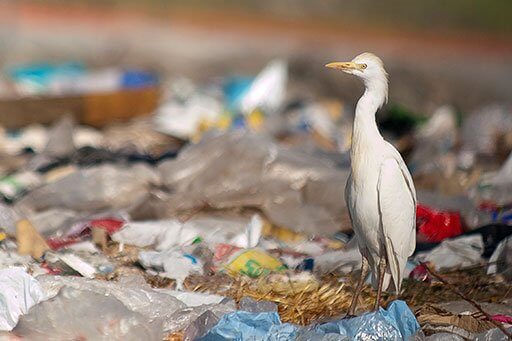
In late 2020, American Bird Conservancy and partners started the SPLASh (Stopping Plastics and Litter Along Shorelines) program to address trash pollution problems along Texas's coast. Why Texas? Research reveals that Texas has the highest average weight of litter per mile of any state in the nation, and marine debris accumulates on the Texas coast 10 times faster than it does on the coasts of other Gulf states, likely due to the ocean currents in the Gulf of Mexico.
SPLASh's work focuses on the greater Houston-Galveston area. Located on the coast of the Gulf of Mexico and the Galveston Bay, the region struggles with large amounts of litter from currents that move trash through the Gulf and from the more than 14.5 million people that live in the Greater Galveston Bay Watershed. Any trash not properly managed in this heavily populated region has a direct pathway to the Galveston Bay and the Gulf of Mexico.
All this trash poses a threat to the more than 600 bird species spending at least some portion of their lives in the state.
SPLASh works to reduce the threat to birds and all other wildlife by conducting community cleanups and by raising awareness through education and outreach programs. Over the last year and half, SPLASh has helped educate over 3,000 people and removed over 11,000 pounds of trash from coastal and bay habitats.
Get Involved
If you are interested in volunteering at a SPLASh cleanup, engaging with our education efforts, or learning more about how you can participate, please visit us at splashtx.org or follow us on social media (@SPLAShTrashTX).
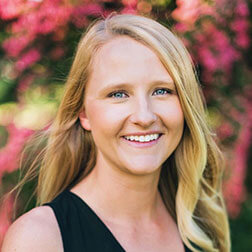 | Kelly Martin is ABC's Texas Coastal Outreach Coordinator. She has a B.A. in Marine Affairs from the University of Miami Rosenstiel School of Marine & Atmospheric Science, and a Master's of Marine Affairs from the University of Washington School of Marine & Environmental Affairs. |
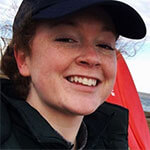 | Celeste Silling works as the Gulf Coast Bird Observatory's Education and Outreach Manager. She attended Lawrence University in Wisconsin and received her Bachelor's degree in Biology in 2016. |
The Animal Rescue Site is a place where people can help provide food and care to millions of animals in need, both in the U.S. and around the world. In addition to sharing personal rescue stories, shopping for the cause, and signing petitions, visitors can take just a moment each day to click on a purple button to help animals. Visit The Animal Rescue Site and click today - it's free!

Until next time….hug your animals. Tell them you love them. If you don’t have a pet, adopt one. Make adoption your first option when seeking a pet. Adopt. Don’t shop. Can’t adopt. Please consider fostering one. The animal will have the taste of home and the shelter will cover the expenses. Can’t foster? Make a donation or volunteer at your local shelter. Please, don’t hunt. Unless you’re starving down in a ditch somewhere, there is no logical reason to do so. Whatever you do, however you do it, please be a voice for the animals large and small. All it takes is one to make a difference, good or bad.

Together, you and I can make a difference in an animal's life. I’m one for the animals. Are you? Thanks for visiting. Stay safe. Be strong. Be happy. Smile. Show compassion. Be nice to one another. Pass it onward. If you like what you see here, please consider signing up to become a follower. Please feel free to share this post with others.
My writing Blog: http://sjfranciswriter.blogspot.com

Remember: Animals don't have voices. We must be their voice. Always. Forever. Wherever. whenever. I'm one for the animals. Are you?









